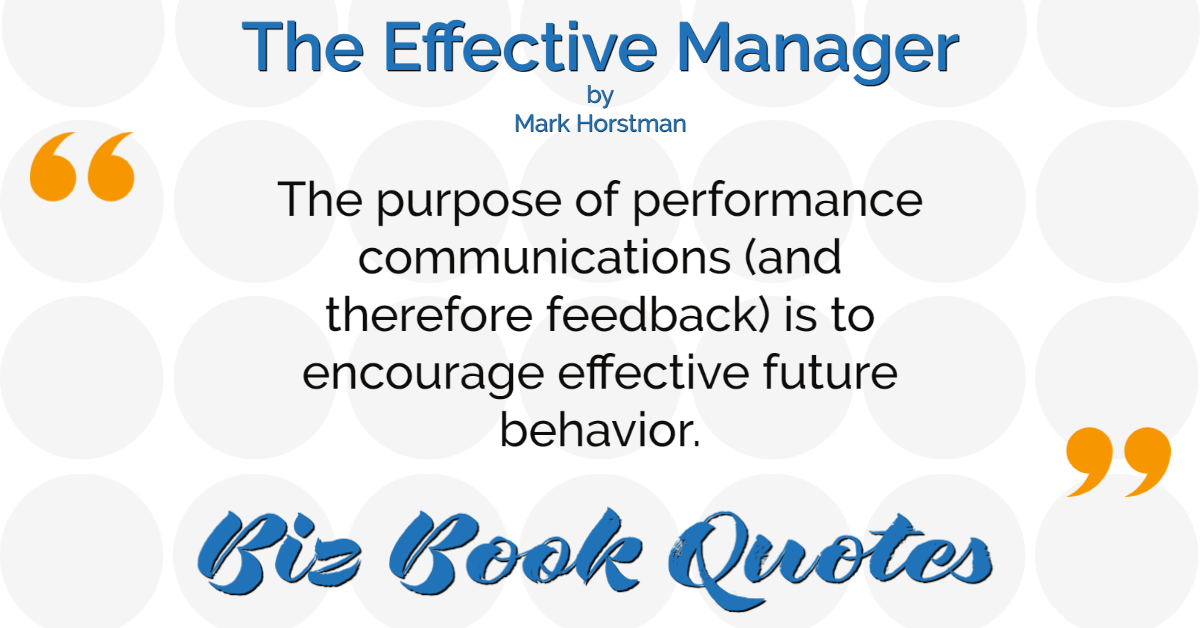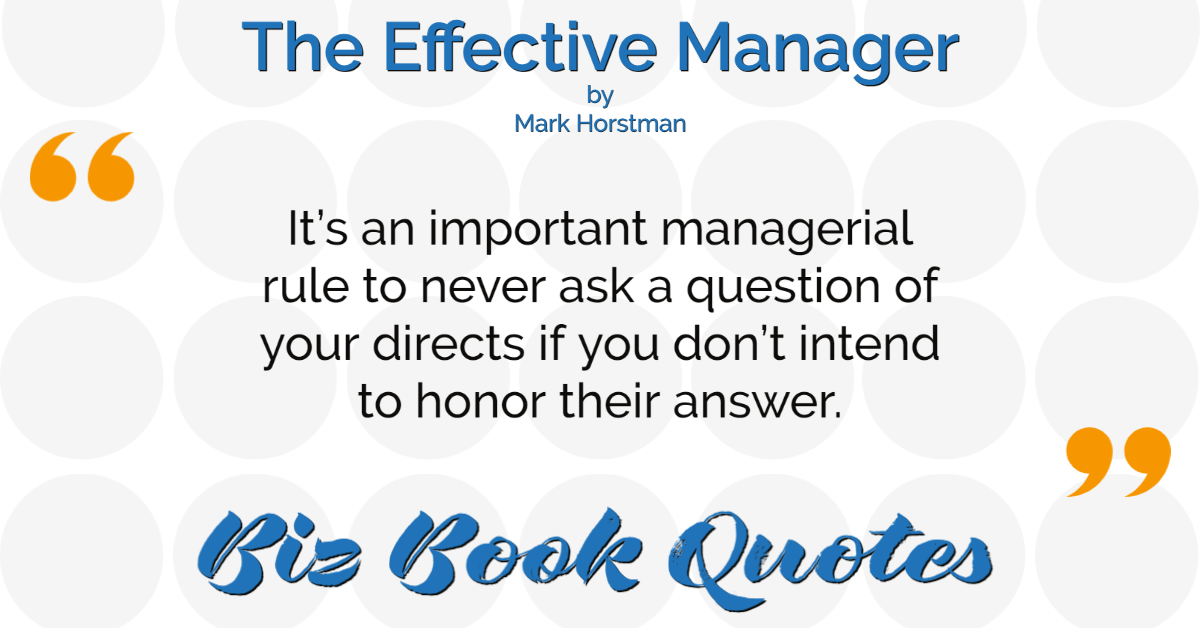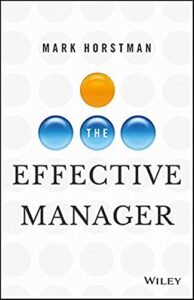|

|
The Effective Manager:
Challenge someone who fears you at some level, and you’ll get some pushback.
|
108 |
|

|
The Effective Manager:
The purpose of performance communications (and therefore feedback) is to encourage effective future behavior.
|
108 |
|

|
The Effective Manager:
There are all kinds of reasons why directs defend themselves. Probably first on the list is a lack of trust in you.
|
108 |
|

|
The Effective Manager:
…your fundamental premise about feedback – talking about what happened – is wrong.
|
109 |
|

|
The Effective Manager:
It’s an important managerial rule to never ask a question of your directs if you don’t intend to honor their answer.
|
110 |
|

|
The Effective Manager:
…attitudes and motivations drive behaviors, but they’re not visible, and we can only guess at them.
|
115 |
|

|
The Effective Manager:
…effective feedback isn’t about waiting until there’s a pattern, and it doesn’t get better with age.
|
118 |
|

|
The Effective Manager:
When we are giving negative feedback, we are asking the direct to behave differently. We’re not punishing the past mistake, because we’ve already forgiven it. Remember that our focus is on the future, not the past.
|
120 |
|

|
The Effective Manager:
Giving immediate feedback is ideal.
|
121 |
|

|
The Effective Manager:
The sooner your directs get feedback about what they do, good or bad, the more quickly they can implement the feedback.
|
122 |











